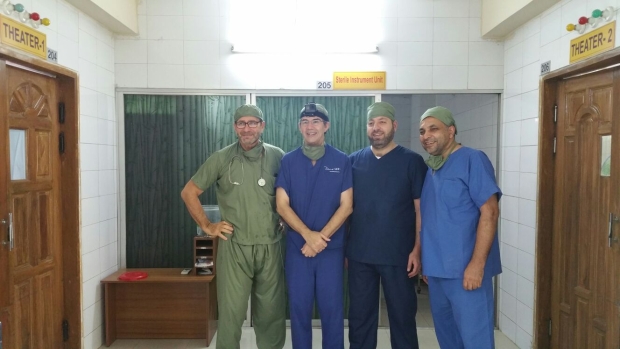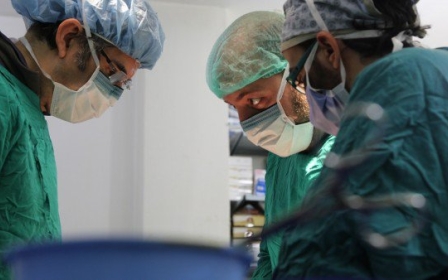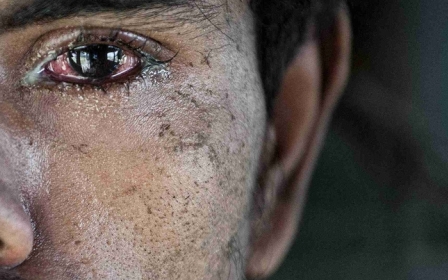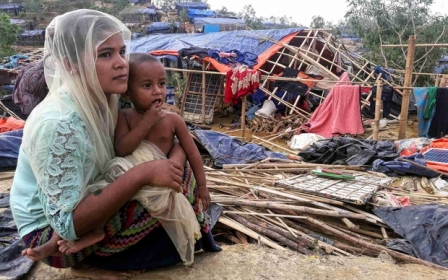From Aleppo siege to Manchester attack: Now this surgeon is treating the Rohingya
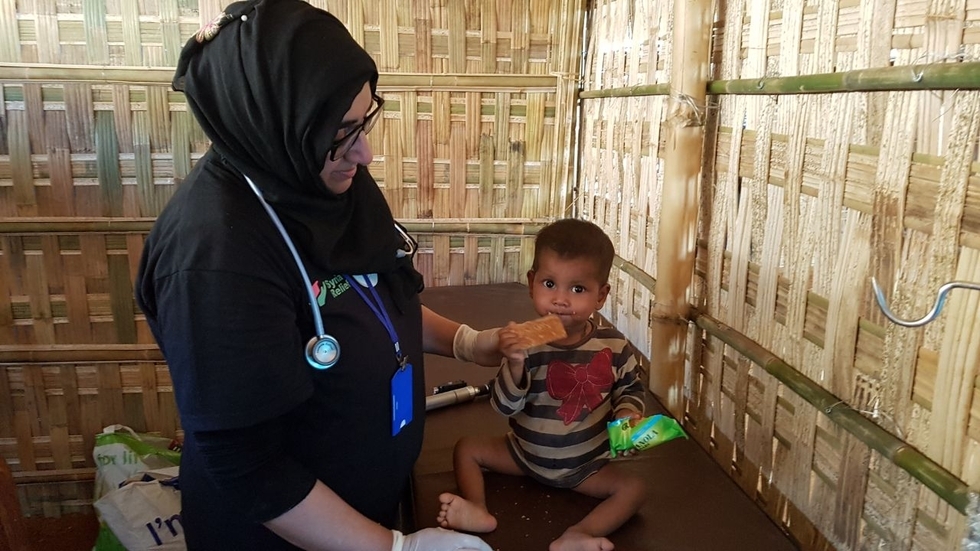
Syrian doctors are using skills learnt while helping the war-wounded in Syria to offer medical care to Rohingya refugees who have escaped persecution in Myanmar.
Several doctors led by Dr Mounir Hakimi, a Syrian surgeon who also treated victims of the Manchester attack in May, travelled to Cox’s Bazaar in Bangladesh at the weekend to treat patients at a local hospital.
Welsh surgeon Dr David Nott, who has a long track-record working in disaster and war zones including Gaza, Libya and Iraq, also travelled as part of the team and along with Hakimi will train surgeons on how to deal with patients suffering from trauma.
“There are so many pregnant ladies, people with burns that need skin grafts and broken bones. We will be applying the same experience here we have gained over the years from working in Syria,” Dr Hakimi told MEE ahead of the trip.
“I just feel that as a Syrian when we needed help in Syria, people from different parts of the world reacted and helped us. We should pay this back to anyone who is in need.”
“There is a huge need for medical intervention for the Rohingya.”
More than 600,000 Muslim Rohingya have fled to Bangladesh since August, as human rights violations by the Myanmar army escalated in what the United Nations has described as “a textbook example of ethnic cleansing”.
Cox’s Bazaar is now home to hundreds of thousands of Muslim Rohingya who are huddled together in sprawling refugee camps which lack clean water, adequate toilet facilities, shelter from the elements, and medical care.
At a makeshift clinic at Kutupalong refugee camp in Cox’s Bazaar, the doctors saw a man who had become paralysed from the waist down after members of the Myanmar army beat him on his spine using the butt of a gun and another man suffering from skin cancer who was vomiting blood.
The team, which consists of GPs, anaesthetists, a pharmacist, a plastic surgeon, and a gynaecologist, also performed surgery on patients yesterday, removing a bladder stone from a man under spinal anaesthesia.
'Apartheid'
A new report by Amnesty International today described the situation of Rohingya in Myanmar as living under an “Apartheid” upheld through laws, policies and practices imposed by the state at all levels.
Through two years of research, it documents instances of rape, burning of entire Rohingya villages and the laying of antipersonnel landmines - actions which escalated earlier this year forcing hundreds of thousands to take the perilous journey to Bangladesh on foot.
Families are still arriving from Myanmar, prompting Dr Shameela Zulfiqar, to travel to the Bangladesh-Myanmar to assist new arrivals.
“During the trip, we saw a very frail and dehydrated elderly lady whom we tried to rehydrate with whatever we had. In the end, we just had to advise that she be taken to the local hospital,” the Manchester-based medical doctor wrote in a Facebook post.
“We also noticed another young Rohingyan woman, absolutely distraught whose husband was carrying their dead son 3-month-old Hamim.
“It was a hugely sobering moment and a reminder of the fragility of life.”
The mission is a joint effort between the David Nott Foundation, the Union of Medical Care & Relief Organisations, and Syria Relief which is led by Hakimi and trains Syrian doctors to provide life-saving work throughout the war-torn country.
Hakimi was in Syria as recently as January, operating on casualties who had been evacuated from opposition-held eastern Aleppo when as part of a deal it was returned to Syrian government control after months of air strikes and shelling.
Two weeks ago, two schools run by Syria Relief were bombed, killing a student in Eastern Ghouta, a rebel-held suburb of Damascus where a siege and aerial bombing campaign by Syrian forces has led to severe malnutrition.
Hakimi told MEE that the Rohingya crisis is not getting the attention it needs and so he hopes to send more missions to Bangladesh, but adds that the situation in eastern Ghouta is even worse with NGOs unable to reach victims there.
“The situation is more severe than people think. People are dying the slow death of starvation. No one can go to eastern Ghouta. We are watching them dying and we can’t help.”
Stay informed with MEE's newsletters
Sign up to get the latest alerts, insights and analysis, starting with Turkey Unpacked
Middle East Eye delivers independent and unrivalled coverage and analysis of the Middle East, North Africa and beyond. To learn more about republishing this content and the associated fees, please fill out this form. More about MEE can be found here.


